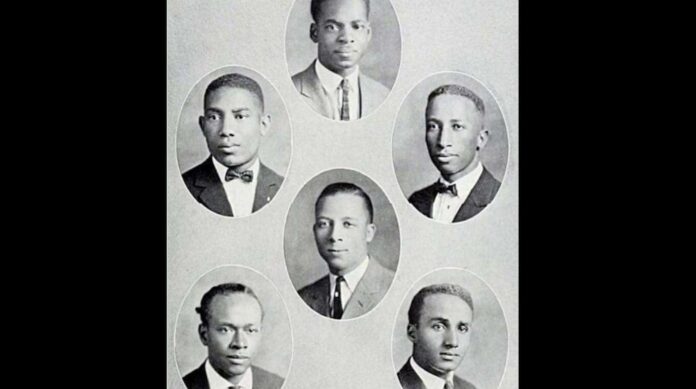
In 1923, UCLA, then known as the Southern Branch of the University of California, was home to just a few thousand students and was still two years away from granting its first degrees. Greek life, however, was already in swing, led by African American students.
In January of that year, a group of Black women had formed UCLA’s first-ever Greek lettered organization, Pi chapter of Delta Sigma Theta Sorority. And in April, a Black fraternity, the Upsilon chapter of Kappa Alpha Psi, opened its doors. Both were branches of national Black Greek-letter bodies formed early in the 20th century to provide a haven and community for African American students, who couldn’t join other fraternities or sororities and were often confronted with racism and marginalization on college campuses.
Over the ensuing 100 years, the Pi and Upsilon chapters would become valuable sources of support and advocacy for Black students at UCLA, foster a rich tradition of community service and social activism on campus, in Los Angeles and beyond, and produce some of the nation’s most respected names in government, business, sports, law and the arts.
In recognition of those contributions and the impact both organizations have had on Black life on UCLA, the university is honoring each this centennial year with permanent plaques on campus. The unveiling of the fraternity’s marker took place at an April 24 ceremony outside Kerckhoff Hall, where speakers will include Executive Vice Chancellor and Provost Darnell Hunt and Los Angeles Mayor Karen Bass.




















